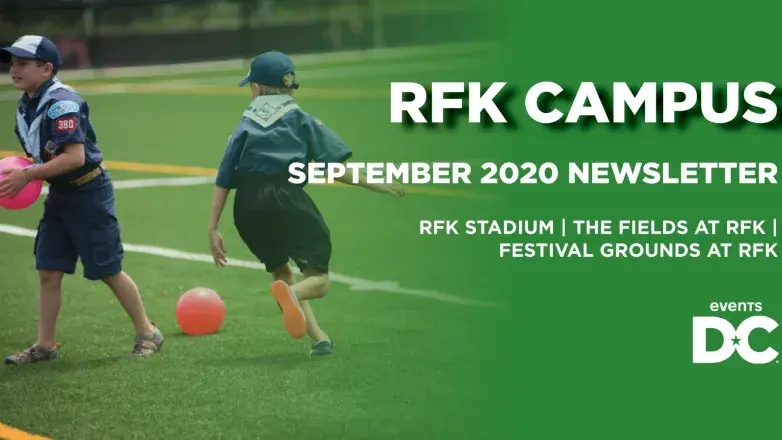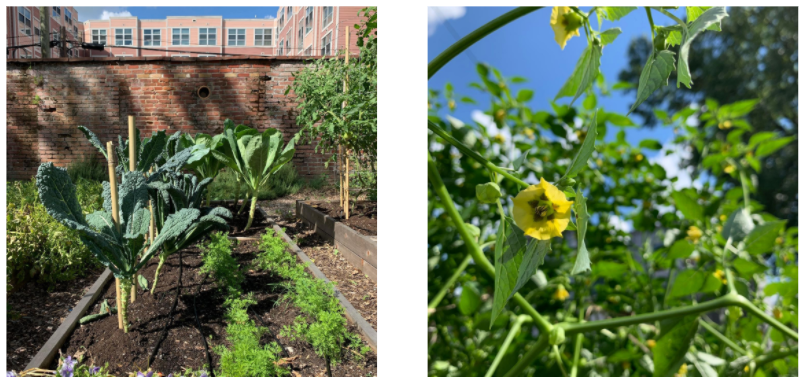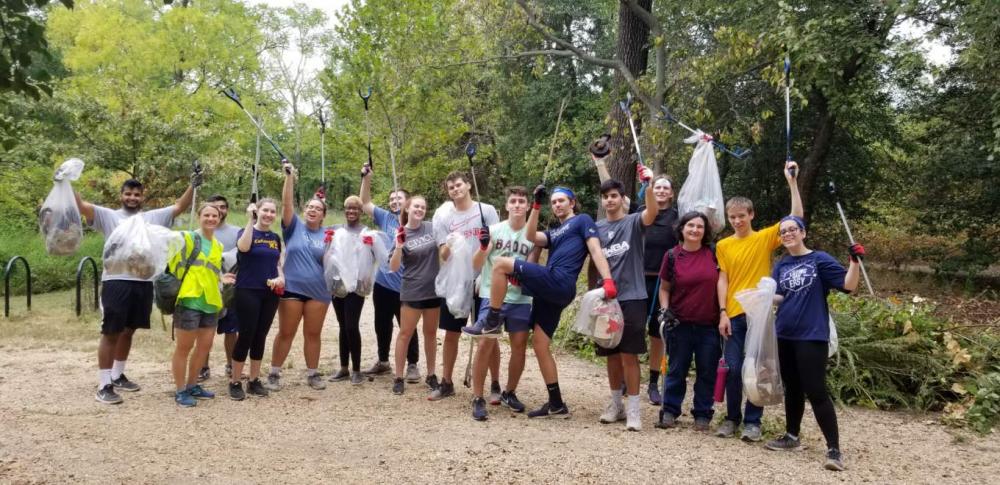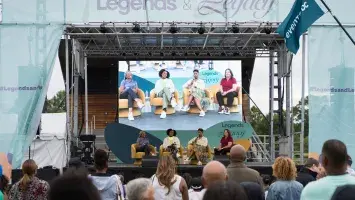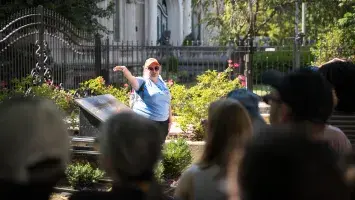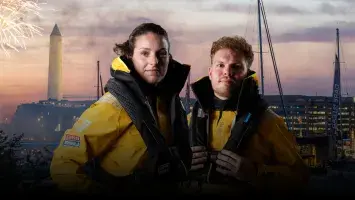What do you know about living classrooms?
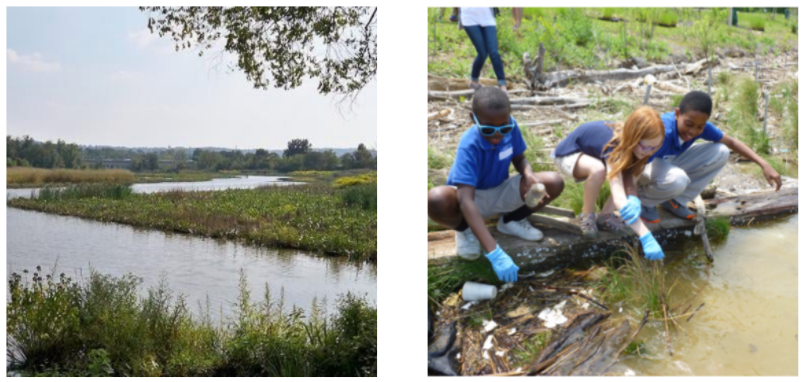
We got to talk with community member Doug Siglin, Managing Director of Living Classrooms’ National Capital Region programs, about the importance of learning by doing and environmental education for our youth. Living Classrooms’ flagship site is the 50-acre Kingman and Heritage Islands Conservation Area, which is in the Anacostia River near RFK Stadium and The Fields.
Siglin and his family have lived in northeast Capitol Hill for over two decades. Having served as a Peace Corps volunteer, a classroom teacher, a Congressional staffer, a nonprofit founder and CEO, and a long-time social justice and environmental program designer and policy advocate, Siglin continues to make a real difference in his community. Check out our full interview with Siglin below!
What makes Living Classrooms unique?
To get to know Living Classrooms, just look at our slogan – Learning by Doing. 35 years ago, the first group of Living Classrooms’ students learned teamwork, math, and engineering skills by building the 104-foot-long schooner Lady Maryland in the Baltimore Harbor. We knew then and we know now that doing is the best way to learning, and we try to honor that in all our programs on Kingman and Heritage Islands, on our historic education ship, Mildred Belle, on the Anacostia at our James C. Dent House Community Center, and at our overnight Camp Fraser in Northern Virginia. It’s a little harder now with so much being virtual, but we’re still doing it.
Tell us about the STEM aspect of your program?
STEM stands for Science, Technology, Engineering, and Math. Everybody understands that those areas are going to become ever more important in the job marketplace. So they are a natural area of focus for us in our education and job training programs. It is sad but true that most DC students don’t do very well in science–even before the pandemic, less than 9% of DC public school students met basic science proficiency standards on standardized tests. The numbers drop to less than 8% basic proficiency in Ward 6 and less than 3% in Wards 7 and 8.
Why is Environmental Education important?
We only have one planet. We are doing a remarkably poor job of keeping it healthy and maybe even keeping it livable. When I was a teen I heard a quote that has stuck with me for nearly 50 years – something like “we protect only what we love, we love only what we understand, and we understand only what we are taught.” My experience is that we are far more likely to protect what we have experienced for ourselves. DC students really have to visit and learn to love natural environmental areas if they are going to play a critical role in protecting the planet. That’s tough for many students in DC, but we help to provide the way to do it in many of our programs.
Tell us about the wildlife and botany integration of the program?
In the DC region, Living Classrooms’ flagship site is the 50-acre Kingman and Heritage Islands Conservation Area, which is in the Anacostia River near RFK Stadium and The Fields. We have managed it on behalf of the DC government for 14 years. Lots of Capitol Hill residents know about it and visit regularly, but not many from other parts of the area. When students visit the Islands, they explore the diversity of plants and animals as they learn about the positive and negative consequences of human impact on ecosystems. Students and community volunteers have been involved in many native plantings and the removal of invasive species, helping to build habitats along the river for more wildlife.
Tell us about the program’s impact on local youth groups?
Youth groups have played a large role in volunteer events, but we have focused most of our formal education programs on students that come to us in school classes. We were planning to roll out an educational camping program for youth groups this summer, but we have had to postpone it until we can get appropriate safety measures in place. Since most school field trips are now postponed until next spring at the earliest, we are actively working towards doing more with small groups.
What are the themes in your programs?
All of our outdoor education programs focus on connecting students to their local environment. When students make observations in our watershed and habitat exploration programs, or as they interact with the invertebrate inhabitants of the Islands and the Anacostia, we use this outdoor, living classroom to encourage them to ask more questions, think about how what they do at home impacts the river ecosystems, and learn what they can do to help. Many of our environmental education programs include this component of taking action to help the environment – on individual, community, and systemic levels.
How can students become a part of Living Classrooms?
Science teachers can contact Living Classrooms to learn about our virtual field trip options and environmental education resources now and to learn about future in-person school programs. Living Classrooms plans to offer small group exploration programs in fall 2020 to students and their parents, as well as small group volunteer opportunities.
We also have strong music and robotics competition programs based out of our Dent House Community Center in Southwest DC. Interested students should contact us for more information.
How can volunteers get involved?
If this were a normal year, we would have hundreds of volunteers helping us to restore and maintain Kingman and Heritage Islands. This is critical part of our work. So far in 2020, it has not been possible for us to welcome groups of volunteers, but we are working on being able to bring back small groups to help with restoration and maintenance this fall. Please contact Teresa Martin for more information.
Website: www.livingclassrooms.org
Email Subscription: https://tinyurl.com/LCFNewsletter
Email POC: tmartin@livingclassroomsdc.org
Facebook: https://www.facebook.com/livingclassroomsDC/
Interviewee – Doug Siglin
Doug Siglin is the Managing Director of Living Classrooms’ National Capital Region programs. He and his family have lived on northeast Capitol Hill for more than two decades. Siglin served for over four decades as a Peace Corps volunteer, a classroom teacher, a Congressional staffer, a nonprofit founder and CEO, and a long-time social justice and environmental program designer and policy advocate.
New Hobby Alert: Block Printing

During quarantine, many community members have showcased their various talents, taken up new hobbies, and acquired new skills. Now there is one more activity to add to that list! Shop Made in DC is offering a new Intro To Block Printing virtual art class. The class introduces the ancient art of block printing, which is the process of carving a pattern, text, or image into a wooden block and stamping it onto a surface. Interested? Visit HERE, for more information.
(Source – Washington City Paper)
Park Up DC - Promo Code
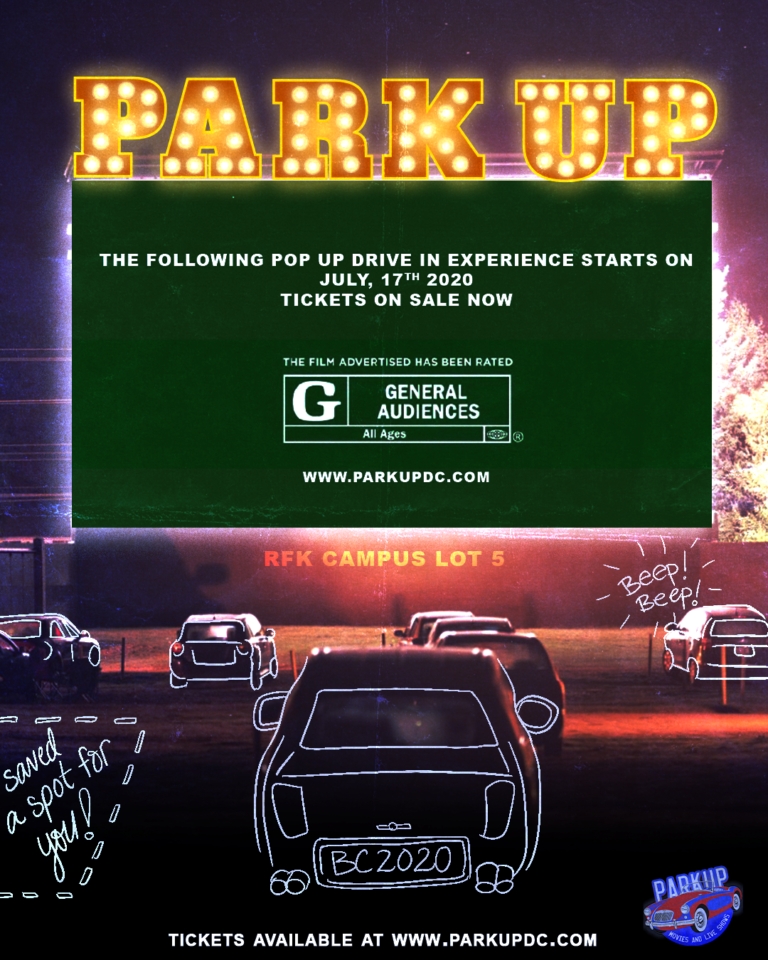
Don’t miss your chance to attend a Park Up DC drive-in movie experience!
Use promo code EVENTSDCSUMMER to get $5 Dollars OFF.
Movies recently added to the Park Up DC lineup include:
- Black Panther (Friday, 9/18)
- Poetic Justice(Saturday, 9/19)
- Men in Black (Sunday, 9/27)
- Anchorman (Thursday, 10/1)
Buy Tickets: https://www.parkupdc.com/
Community Spotlight: The Nicholson Project Community Garden
The Nicholson Project is a paid artist residency and neighborhood garden in the Fairlawn neighborhood of SE DC (Ward 7). Launched in September 2019, The Nicholson Project serves as a creative and cultural hub that celebrates the authentic identity of the neighborhood, providing financial support and space for artists to create in our community.
In addition to the arts programming, The Nicholson Project manages a 15-bed organic garden in their outdoor space. With the onset of COVID-19, and the economic and food insecurity it created, The Nicholson Project pivoted the garden to respond to the immediate needs of the community by providing fresh produce. To date, over 1000 bags of fresh herbs, greens, and vegetables have been distributed within the neighborhood, totaling over 3500 servings of fresh produce. The garden also serves as a source of beauty and a sanctuary in the community, giving opportunities for shared discovery and joy.
Please visit the website www.thenicholsonproject.org or Instagram @thenicholsonproject if you are interested in visiting, learning more about urban gardening, or volunteering in the garden.
Local Volunteer Opportunity: Kenilworth Aquatic Gardens
Friends of Kenilworth Aquatic Gardens is seeking volunteers to introduce visitors to the plants and wildlife who call the gardens home. Volunteers will be asked to commit to a weekly or monthly schedule. Each volunteer will receive training from the lead park ranger. The volunteer roles available are greeters, visitor center support staff, tour guides, or education assistants. To learn more about how you can become a volunteer, please contact the Friends of Kenilworth Aquatic Gardens Volunteer Coordinator, David Drawbaugh, at david@fokag.org.
(Source – East of The River DC News)
Tips for Helping Parents and Children Cope with COVID-19
Community members are continuing to adapt to a “new normal” during the COVID-19 pandemic. Parents and children are both, learning together, how to navigate through this adaptation. With the beginning of the new school year, whether students are learning from home, or in individual small group sessions, each family is seeking how to best accomplish the complexities of distance learning.
The following are a few tips for parents and children on how to cope with the COVID-19 pandemic:
- Stay calm, listen, and offer reassurance.
- Be a positive role model. Children will react to and follow your reactions. They learn from your example. They will model your patience and encouragement of virtual distance learning.
- Be aware of how you talk about COVID-19. Remind your child that your family is healthy, and you are going to do everything within your power to keep loved ones safe and well. Carefully listen or have them draw or write out their thoughts and feelings and respond with truth and reassurance.
- Explain social distancing. Children probably don’t fully understand why parents/guardians aren’t allowing them to be with friends and in a physical school. Tell your child that your family is following the guidelines of the Centers for Disease Control and Prevention (CDC), which includes social distancing. Social distancing means staying away from others until the risk of contracting COVID-19 is under control. Showing older children the “flatten the curve” charts will help them grasp the significance of social distancing. Explain that while we don’t know how long it will take to “flatten the curve” to reduce the number of those infected, we do know that this is a critical time—we must follow the guidelines of health experts to do our part.
- Demonstrate deep breathing. Deep breathing is a valuable tool for calming the nervous system. Do breathing exercises with your children.
- Focus on the positive. Celebrate having more time to spend as a family. Make it as fun as possible. Do family projects. Organize belongings, create masterpieces. Sing, laugh, and play!
- Establish and maintain a daily routine. Keeping a regular schedule provides a sense of control, predictability, calm, and well-being. It is also important to connect with family and friends virtually.
- Identify projects that might help others.
- Get fresh air and exercise.
- Offer lots of love and affection.
(Source – NASP Online)
